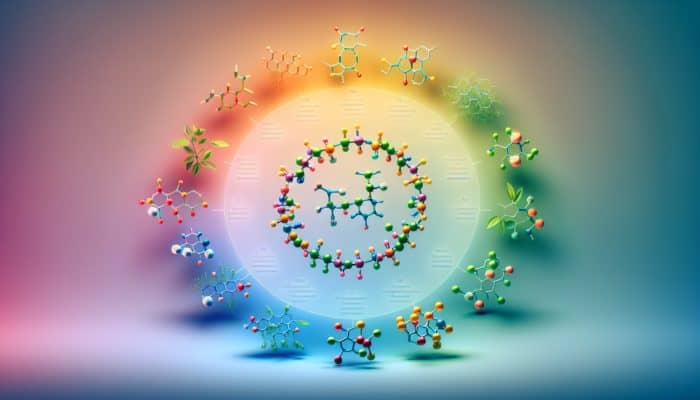Unlock the Health Benefits of Essential Amino Acids for Optimal Well-Being
Delve into the Importance of Essential Amino Acids for Your Health Journey

Essential amino acids are critical components of proteins that the human body cannot synthesize independently, making it essential for individuals to source these nutrients through their diet. These vital compounds are involved in numerous physiological functions, including protein synthesis, metabolism, and the maintenance of cellular health. The human body requires nine essential amino acids to operate at its best:
- Histidine
- Isoleucine
- Leucine
- Lysine
- Methionine
- Phenylalanine
- Threonine
- Tryptophan
- Valine
Each essential amino acid has a distinct function, contributing to the complex network of biochemical processes that sustain life. For instance, leucine is vital for muscle repair and growth, whereas tryptophan is crucial for the production of serotonin, a neurotransmitter that significantly affects mood and sleep quality.
Enhance Recovery and Repair with Essential Amino Acids
The role of essential amino acids in recovery is both extensive and multifaceted. During physical activity or periods of stress, the body experiences muscle microtears that require repair and regeneration. Essential amino acids are essential for this recovery process, allowing the body to efficiently repair and regenerate muscle tissue. Additionally, they boost immune function, which can decline during high-intensity exercise or illness. A robust immune response is vital for overall health, particularly for athletes or individuals recovering from injuries or surgical procedures.
Moreover, these amino acids contribute to overall well-being by supporting metabolic functions crucial for energy production and maintaining physiological balance. For those involved in intense training or recovering from health challenges, ensuring an ample supply of essential amino acids in their diet is crucial for optimising recovery and promoting long-term health.
Discovering Food Sources of Essential Amino Acids
To meet the body’s requirements for essential amino acids, individuals can choose from a wide range of food options. Animal-based products are particularly rich in these amino acids. Foods such as lean meats, poultry, fish, eggs, and dairy products like yogurt and cheese provide complete protein profiles. These sources ensure that all essential amino acids are consumed together, which aids in optimal absorption and utilisation within the body.
On the other hand, plant-based sources also offer essential amino acids, although they may not always provide all nine in sufficient quantities. Foods like quinoa, soy, chia seeds, and hemp seeds are exceptional for delivering complete protein profiles. Additionally, combining various plant-based foods can enhance amino acid profiles; for example, pairing legumes with whole grains guarantees that individuals following vegetarian or vegan diets can adequately meet their amino acid needs.
Daily Guidelines for Essential Amino Acid Intake

Daily requirements for essential amino acids can vary significantly depending on factors such as age, gender, body composition, and activity levels. Generally, adults may need a higher intake during periods of rigorous training or recovery. The Recommended Dietary Allowances (RDAs) provide baseline guidelines; however, individual requirements may differ. For example, athletes often benefit from increased protein and amino acid consumption to promote muscle growth and expedite recovery.
Understanding one’s specific needs can lead to more effective dietary planning and supplementation strategies. Active individuals should aim for a higher intake of protein-rich foods or supplements to ensure optimal recovery. A well-balanced diet that includes a variety of sources will help maintain sufficient levels of essential amino acids, thereby supporting overall health and effective recovery.
Exploring the Mechanisms by Which Essential Amino Acids Support Recovery
Diving Deeper into the Recovery Benefits of Amino Acids
Essential amino acids are pivotal in initiating protein synthesis, which is a critical process for muscle repair and growth. During exercise, muscles undergo stress that leads to their breakdown; amino acids act as the essential building blocks required to repair this damage. This mechanism not only facilitates the restoration of muscle fibres but also enhances future performance by increasing muscle mass and strength.
Furthermore, essential amino acids have been shown to reduce muscle breakdown. They supply the necessary substrates for synthesising new proteins while simultaneously inhibiting pathways that lead to muscle degradation. This dual action supports efficient recovery post-exercise, minimising muscle soreness and allowing for a quicker return to training activities.
Additionally, the consumption of essential amino acids can influence hormonal responses that are beneficial for recovery. The anabolic effects of these amino acids not only support muscle health but also enhance metabolic efficiency, contributing to improved overall physical performance.
Essential Amino Acids and Their Impact on Muscle Repair

The significance of essential amino acids in muscle repair is paramount. After engaging in exercise, especially resistance training, the body enters a recovery phase where muscle fibres sustain damage and require reconstruction. Essential amino acids, particularly leucine, are crucial for initiating muscle protein synthesis, enabling the body to repair and strengthen muscle tissue.
Biochemically, this process involves a series of complex steps. Once ingested, essential amino acids enter the bloodstream and are transported to muscle tissues. Here, they activate the mTOR (mechanistic target of rapamycin) pathway, which is a primary regulator of cellular growth and muscle protein synthesis. This activation promotes the production of new muscle proteins, effectively repairing damaged fibres and fostering muscle hypertrophy.
Moreover, without sufficient intake of essential amino acids, the body struggles to efficiently rebuild muscle tissue, leading to prolonged soreness and extended recovery times. Therefore, it is crucial for individuals, particularly athletes, to ensure they consume adequate amounts of these amino acids post-exercise to optimise recovery results.
Boosting Immune Function through Essential Amino Acids
Essential amino acids are essential for sustaining a strong immune system, particularly during recovery phases. They play a vital role in producing antibodies and immune cells, which are crucial for fighting infections and aiding healing following injury or illness. The immune system heavily relies on various proteins, many of which are composed of amino acids.
During periods of physical stress, such as intense training or recuperation from illness, the body’s demand for these amino acids increases. Sufficient intake can enhance the synthesis of immunoglobulins, antibodies that are essential in the body’s defence against pathogens. Additionally, specific amino acids, like glutamine, are known to nourish immune cells, boosting their functionality during times of heightened demand.
Consequently, individuals who overlook their amino acid intake may experience compromised immune function, making them more susceptible to illnesses. Therefore, maintaining a diet rich in essential amino acids is vital for promoting immune health, especially for those recovering from physical stressors.
Expert Insights on Optimising Recovery with Essential Amino Acids
Practical Applications of Essential Amino Acids in Recovery Strategies
The real-world applications of essential amino acids underscore their effectiveness across various recovery scenarios. Athletes and fitness enthusiasts frequently integrate these supplements into their recovery protocols, yielding substantial benefits. For example, a group of marathon runners reported significantly reduced muscle soreness and enhanced recovery times after incorporating essential amino acid supplementation post-race.
- A professional weightlifter utilised essential amino acids during a rigorous training cycle, resulting in improved muscle recovery and notable strength gains.
- A triathlete experienced quicker recovery and reduced fatigue after using branched-chain amino acids (BCAAs) both before and after workouts.
- A soccer player recovering from an injury found that essential amino acids expedited tissue repair and enabled a faster return to play.
- A coach integrated amino acid supplementation into his athletes’ regimens, leading to overall performance improvements and decreased injury rates during training sessions.
These testimonials illustrate how essential amino acids can provide measurable benefits in both competitive and recreational contexts. They represent an effective strategy for optimising recovery and enhancing athletic performance, highlighting the importance of incorporating these compounds into dietary or supplementation practices.
Maximising Your Essential Amino Acid Intake: Effective Strategies
To fully leverage the advantages of essential amino acids for recovery, individuals should consider actionable strategies regarding timing, dosages, and dietary sources. Consuming essential amino acids around workout times—both before and after exercise—can significantly improve recovery outcomes. For instance, a dosage of 10-20 grams of essential amino acids taken post-exercise has been shown to stimulate muscle protein synthesis effectively.
Furthermore, prioritising a diverse range of dietary sources is crucial to meet essential amino acid needs. Including various protein-rich foods, such as lean meats, dairy products, and plant-based alternatives, will help achieve balanced intake. Meal planning that incorporates snacks high in essential amino acids, like Greek yogurt or protein bars, can also be beneficial.
Finally, ensuring proper hydration and consuming a comprehensive diet rich in vitamins and minerals is vital for supporting the overall recovery process. Pairing essential amino acids with carbohydrates post-exercise can enhance their absorption, further facilitating effective recovery.
Expert Recommendations for Comprehensive Recovery Approaches
Experts highlight the importance of integrating essential amino acids into holistic recovery strategies that encompass various aspects of healing and performance enhancement. Combining amino acid supplementation with adequate hydration, nutrition, and rest creates synergistic effects that can significantly accelerate recovery.
Incorporating essential amino acids alongside other recovery techniques—such as stretching, foam rolling, and ensuring sufficient sleep—fosters a well-rounded approach to recovery. This multifaceted strategy addresses not only muscle repair but also overall physical and mental well-being.
Moreover, experts advocate for customising recovery protocols based on individual goals and fitness levels. For athletes, a periodised approach to amino acid intake—adjusting dosages according to training cycles—can optimise performance and recovery outcomes. Such personalised strategies enhance the effectiveness of recovery efforts, ensuring athletes can perform at their best while minimising injury risks.
Essential Amino Acids and Muscle Repair Dynamics
Essential amino acids are irreplaceable in the complex process of muscle repair. When muscles endure damage during exercise, the body initiates a repair mechanism that requires essential amino acids to restore and strengthen muscle fibres. This process is heavily influenced by specific amino acids, especially leucine, which is crucial for activating signalling pathways that stimulate muscle protein synthesis.
At the biochemical level, upon ingestion, essential amino acids are metabolised and transported to muscle tissues, where they activate the mTOR pathway, a key regulator involved in muscle growth. This activation leads to the synthesis of new proteins necessary for repairing damaged muscle fibres. Furthermore, essential amino acids help replenish energy stores and support muscle recovery by mitigating oxidative stress and inflammation triggered by exercise.
The significance of essential amino acids extends beyond immediate recovery; they also contribute to long-term muscle health and strength. Adequate intake promotes muscle hypertrophy, enhances endurance, and ultimately aids athletes in achieving their performance objectives.
Scientific Research Supporting the Use of Amino Acids in Recovery
Recent studies consistently highlight the pivotal role of essential amino acids in recovery. Numerous research efforts indicate that athletes who supplement with essential amino acids experience reduced muscle soreness and faster recovery periods compared to those who do not. For instance, a study demonstrated that athletes consuming a blend of essential amino acids experienced less delayed onset muscle soreness (DOMS) following intense training sessions.
Additionally, research underscores the efficacy of amino acids in stimulating muscle protein synthesis. Clinical trials have shown that optimal dosages of essential amino acids lead to significant increases in muscle protein synthesis rates, facilitating recovery and growth. These findings have substantial implications for formulating tailored recovery protocols, suggesting that integrating essential amino acids into post-exercise nutrition can greatly enhance recovery outcomes.
As research continues to evolve, our understanding of the role that essential amino acids play in recovery becomes increasingly nuanced, solidifying their significance in athletic training and rehabilitation strategies.
Timing Your Essential Amino Acid Consumption for Optimal Results
Maximise Performance with Pre-Workout Essential Amino Acid Supplementation
Taking essential amino acids prior to a workout can significantly influence performance and recovery. By consuming essential amino acids before exercise, individuals can prepare their bodies for the physical challenges ahead, potentially enhancing endurance and minimising muscle breakdown during workouts. This proactive approach ensures that the body has an available supply of amino acids to support energy production and muscle function.
Research suggests that ingesting 5-10 grams of essential amino acids 30-60 minutes before exercising can provide essential support for improved performance. This timing can also help mitigate muscle damage, leading to quicker recovery post-exercise. Athletes frequently report feeling more energised and less fatigued when they have consumed amino acids prior to their training sessions, underscoring the advantages of this practice.
Moreover, pre-workout supplementation can enhance mental focus and motivation, which are critical elements for maximising workout effectiveness. By integrating essential amino acids into their pre-workout routine, individuals can set the stage for a productive and effective training session.
The Crucial Role of Post-Workout Recovery
The post-workout period is vital for recovery, and consuming essential amino acids during this time can significantly expedite muscle repair and regeneration. Following exercise, the body enters an anabolic state, providing an optimal window to supply essential amino acids that contribute to muscle recovery. Consuming 10-20 grams of essential amino acids within 30 minutes post-exercise can optimise muscle protein synthesis and reduce soreness.
This timely intake not only facilitates muscle repair but also replenishes glycogen stores, which is essential for restoring energy levels. Athletes often complement their essential amino acid intake with carbohydrates post-workout to further enhance recovery. This combination supports muscle rebuilding and aids in energy restoration, ensuring athletes are well-prepared for their subsequent training sessions.
Additionally, the psychological advantages of post-workout nutrition should not be overlooked. Being aware that they are actively supporting their recovery through nutrition can boost athletes’ motivation and commitment to their training programmes.
Providing Continuous Support with Essential Amino Acids Throughout the Day
Regularly consuming essential amino acids throughout the day can offer ongoing support for recovery processes, particularly for those engaged in high physical demands or recuperating from illness. Distributing amino acid intake across meals and snacks helps maintain a steady supply of these vital nutrients, enhancing muscle recovery and overall health.
For individuals involved in intense training or facing stressors, incorporating essential amino acids into daily routines can facilitate ongoing recovery. This may include consuming protein-rich snacks such as nuts, yogurt, or protein shakes between meals. These habits ensure that the body is not deprived of essential nutrients throughout the day, thereby promoting sustained muscle repair and immune support.
Furthermore, timing amino acid intake around meals can improve overall protein utilisation. Consuming essential amino acids before bedtime can also aid in overnight recovery, allowing the body to rebuild and repair while resting. By making essential amino acids a regular part of daily nutrition, individuals can optimise their recovery and enhance their physical performance.
Key Advantages of Essential Amino Acids in Promoting Recovery
Accelerating Muscle Recovery with Essential Amino Acids
Essential amino acids are fundamental in speeding up muscle recovery, especially after intense physical exertion. By facilitating protein synthesis, they assist in repairing muscle fibres that sustain damage during exercise, thereby reducing recovery time and soreness. This effect is particularly beneficial for athletes who engage in regular training, enabling them to maintain performance levels without enduring prolonged downtime.
The synergy of essential amino acids not only expedites recovery but also contributes to muscle hypertrophy, enhancing overall muscle growth over time. Many athletes report experiencing quicker recovery periods and sustained performance levels when they incorporate essential amino acids into their post-workout routines.
Moreover, the impact of essential amino acids on muscle recovery goes beyond physical restoration. Psychological factors, such as decreased perceived exertion and faster recovery times, can significantly influence an athlete’s motivation and ability to train consistently, ultimately leading to enhanced performance outcomes.
Boosting Endurance Performance with Essential Amino Acids
Essential amino acids play a pivotal role in enhancing endurance, making them an invaluable component of training regimens for athletes engaged in endurance sports. By supporting muscle function and alleviating fatigue, essential amino acids can elevate overall performance during prolonged physical activities.
Research indicates that essential amino acids help delay the onset of fatigue by preserving muscle glycogen stores and enhancing energy production. This effect allows athletes to maintain higher intensity levels for longer durations, ultimately improving endurance performance.
Additionally, the role of essential amino acids in aiding recovery after endurance events should not be overlooked. By reducing muscle damage and soreness, athletes can recover more swiftly, preparing them for future training sessions or competitions. This dual benefit of enhancing both performance and recovery underscores the significance of essential amino acids in endurance training.
Contributions of Essential Amino Acids to Overall Health and Well-Being
The benefits of essential amino acids extend far beyond muscle recovery; they play a significant role in overall health and wellness. Essential amino acids are vital in numerous biological processes, including hormone regulation, neurotransmitter production, and immune function.
By supporting neurotransmitter synthesis, essential amino acids can enhance mood and cognitive clarity—critical factors during recovery phases. Maintaining a positive mental state fosters an environment conducive to healing, ultimately resulting in improved recovery outcomes.
Moreover, essential amino acids bolster immune function by aiding in the production of antibodies and immune cells essential for defending the body against illness. This is particularly crucial for athletes or individuals recovering from injuries, as their immune systems may be compromised during demanding training or healing processes.
In summary, incorporating essential amino acids into the diet not only supports muscle recovery but also promotes a holistic approach to health, ensuring individuals remain resilient and capable during recovery phases.
Enhancing Mental Focus and Mood with Essential Amino Acids
Essential amino acids are crucial for synthesising neurotransmitters that maintain mental focus and emotional well-being. The connection between amino acids and neurotransmitter production underscores their importance not only for physical recovery but also for psychological health.
For instance, tryptophan, an essential amino acid, serves as a precursor to serotonin, a neurotransmitter that influences mood and cognitive function. Elevated serotonin levels are associated with improved mood and reduced feelings of anxiety and depression, making essential amino acids indispensable for mental health during recovery.
Furthermore, maintaining mental clarity and focus can significantly impact an athlete’s performance, especially in high-pressure situations. Supplementing with essential amino acids can provide the necessary building blocks for neurotransmitter production, thereby enhancing cognitive function and emotional stability during recovery periods. This comprehensive approach to recovery ensures that individuals can perform optimally both physically and mentally.
Effective Strategies for Integrating Essential Amino Acids into Your Diet
Identifying Sources and Meal Planning for Essential Amino Acids
Incorporating essential amino acids into your diet requires thoughtful meal planning, focusing on protein-rich foods. Recognising which foods provide essential amino acids is crucial for ensuring adequate intake. Animal-based sources such as meat, fish, dairy, and eggs are excellent options, offering complete protein profiles. For those adhering to plant-based diets, foods like quinoa, soy, and legumes can supply essential amino acids, especially when paired with grains.
Effective meal planning should prioritise a variety of these food sources throughout the day. For instance, including eggs or yogurt for breakfast, a lean protein source like chicken or fish for lunch, and legumes or tofu for dinner can help diversify amino acid intake. Additionally, including snacks rich in essential amino acids, such as nuts or protein bars, can assist in meeting daily requirements.
By strategically planning meals and snacks, individuals can seamlessly integrate essential amino acids into their diets, ensuring they effectively support recovery and overall health.
Optimal Food Pairings for Enhanced Amino Acid Profiles
Combining different protein sources can ensure individuals receive all essential amino acids necessary for optimal health. For instance, pairing legumes, which are often low in certain essential amino acids like methionine, with grains such as rice or quinoa can create a complete amino acid profile. This combination is particularly beneficial for those on vegetarian or vegan diets, enabling them to effectively meet their amino acid needs.
Other effective combinations include:
- Peanut butter on whole-grain bread
- Hummus with pita bread
- Chickpeas with brown rice
- Quinoa salad with black beans
- Tofu stir-fry with assorted vegetables and brown rice
These combinations not only enhance amino acid profiles but also promote a balanced intake of other essential nutrients, supporting overall health and recovery. By being mindful of food combinations, individuals can optimise their diets for better health outcomes.
Exploring Supplementation Options for Essential Amino Acids
For those who find it challenging to meet their essential amino acid needs through diet alone, supplementation can provide a convenient solution. Opting for high-quality amino acid supplements can effectively support recovery, particularly for athletes or individuals with increased physical demands.
Common forms of amino acid supplements include branched-chain amino acids (BCAAs) and complete essential amino acid blends. BCAAs, comprised of leucine, isoleucine, and valine, are especially popular for their roles in muscle recovery and mitigating exercise-induced fatigue. Comprehensive essential amino acid supplements contain all nine essential amino acids and can benefit those looking to enhance muscle protein synthesis.
When selecting supplements, it is crucial to consider the following:
- Choose reputable brands that provide third-party testing
- Consider dosage based on individual activity levels and requirements
- Evaluate the type of supplementation (powder, capsule, liquid)
- Assess taste and mixability for powders if applicable
Incorporating high-quality supplements can enhance recovery, especially when dietary intake is insufficient or during intensive physical training.
Research-Backed Benefits of Essential Amino Acids in Recovery
Scientific Evidence on Muscle Recovery from Amino Acids
Extensive research has demonstrated that essential amino acids can significantly improve muscle recovery following intense exercise. Studies indicate that athletes who consume essential amino acids experience less muscle soreness and quicker recovery times compared to those who do not supplement. For example, a study revealed that participants who ingested essential amino acids post-exercise exhibited a substantial reduction in delayed onset muscle soreness (DOMS) over a 48-hour period.
Moreover, research indicates that essential amino acids stimulate muscle protein synthesis, facilitating effective recovery and adaptation to training. Consistent findings across clinical studies support the idea that incorporating essential amino acids into post-exercise nutrition can enhance recovery outcomes and improve overall training adaptations.
These findings reinforce the importance of considering essential amino acid supplementation as a vital element of recovery strategies, particularly for athletes engaged in high-intensity or prolonged training sessions.
Essential Amino Acids’ Impact on Injury Recovery Processes
Clinical studies have highlighted the beneficial effects of essential amino acids on recovery from injuries. Research shows that essential amino acids play a critical role in supporting tissue repair, assisting in the healing of damaged muscles and connective tissues. For instance, a study revealed that individuals recovering from surgical procedures who supplemented with essential amino acids experienced faster recovery times and improved outcomes.
Additionally, essential amino acids help mitigate inflammation and oxidative stress, both of which can impede recovery. By providing the necessary building blocks for protein synthesis, essential amino acids facilitate the healing process, allowing individuals to regain strength and functionality more rapidly following injuries.
These benefits underscore the significant role essential amino acids can play in rehabilitation protocols, enhancing recovery processes and improving the quality of life for individuals healing from injuries.
The Long-Term Health Advantages of Essential Amino Acids
Longitudinal studies suggest that consistent intake of essential amino acids can yield substantial long-term health benefits, including improved muscle mass and function, particularly among aging populations. As individuals age, the body’s ability to synthesize proteins diminishes, leading to a decline in muscle mass and strength. Research indicates that sufficient amino acid intake can counteract these declines, promoting better muscle health and functional capacity.
Moreover, regular consumption of essential amino acids has been linked to enhanced metabolic health and a reduced risk of chronic diseases. By supporting muscle health and promoting metabolic efficiency, essential amino acids contribute to long-term well-being, offering potential protective effects against age-related muscle loss and metabolic disorders.
These findings highlight the importance of maintaining a diet rich in essential amino acids throughout life, reinforcing their role in promoting health and longevity.
Looking Ahead: Future Directions and Insights on Essential Amino Acids
Key Insights on the Importance of Essential Amino Acids
Essential amino acids are indispensable for recovery, playing crucial roles in muscle repair, immune function, and overall health. They serve as the foundational elements for proteins, facilitating muscle regeneration and supporting physiological processes vital for optimal recovery. Individuals engaged in intense physical activities or recovering from illnesses should prioritise adequate intake of essential amino acids to enhance recovery outcomes and support overall health.
Emerging Trends in Amino Acid Research and Applications
Ongoing research continues to explore new applications and benefits of essential amino acids, with a focus on personalised nutrition and tailored recovery strategies. Advances in amino acid supplementation are paving the way for specially formulated products designed to cater to individual needs. This evolution in research holds promise for optimising recovery and enhancing athletic performance through targeted amino acid profiles.
Recommendations for Future Users of Essential Amino Acids
Future recommendations may encompass personalised amino acid profiles that consider individual activity levels, dietary preferences, and health objectives. Optimised supplementation protocols and integrated recovery plans that incorporate essential amino acids can help individuals maximise their recovery and performance. As research progresses, our understanding of how to best utilise essential amino acids for recovery will continue to improve, leading to better outcomes for athletes and individuals alike.
Frequently Asked Questions About Essential Amino Acids
What are essential amino acids?
Essential amino acids are those that the body cannot synthesise independently and must be acquired through dietary sources. They are critical for protein synthesis and various metabolic processes.
Why are essential amino acids vital for recovery?
Essential amino acids are crucial for repairing muscle tissue, supporting immune function, and enhancing overall health, making them indispensable for recovery after exercise or illness.
How can I ensure I get enough essential amino acids?
You can obtain essential amino acids through a balanced diet rich in protein sources such as meat, fish, dairy, and plant-based foods like quinoa and soy.
What is the optimal timing for consuming essential amino acids?
Taking essential amino acids both before and after workouts can optimise recovery, as they help prepare the body for exertion and support muscle repair afterward.
Can essential amino acids be sourced from plant-based diets?
Yes, plant-based diets can supply essential amino acids, particularly through foods like quinoa, soy, legumes, and by effectively combining different protein sources.
How much essential amino acids should I aim to consume daily?
Daily requirements vary based on factors like age and activity level, but athletes typically benefit from higher intakes, generally ranging from 10-20 grams around workout times.
Are there available supplements for essential amino acids?
Yes, essential amino acid supplements are widely available, including branched-chain amino acids (BCAAs) and complete essential amino acid blends, which can aid in recovery.
Do essential amino acids enhance endurance performance?
Yes, essential amino acids can improve endurance by supporting muscle function, reducing fatigue, and promoting faster recovery after prolonged physical activities.
What role do essential amino acids play in muscle repair processes?
Essential amino acids are vital for stimulating muscle protein synthesis, facilitating the repair and rebuilding of muscle fibres damaged during exercise.
Can essential amino acids support immune function?
Yes, essential amino acids are involved in the production of antibodies and immune cells, enhancing the immune response, especially during recovery from illness or intense training.
Connect with us on Facebook!
The Article Essential Amino Acids for Recovery: Key Benefits and Uses appeared first on https://athleticsupplement.com
The Article Essential Amino Acids: Benefits for Recovery and Use Cases Was Found On https://limitsofstrategy.com
References:
Essential Amino Acids for Recovery: Benefits and Applications



